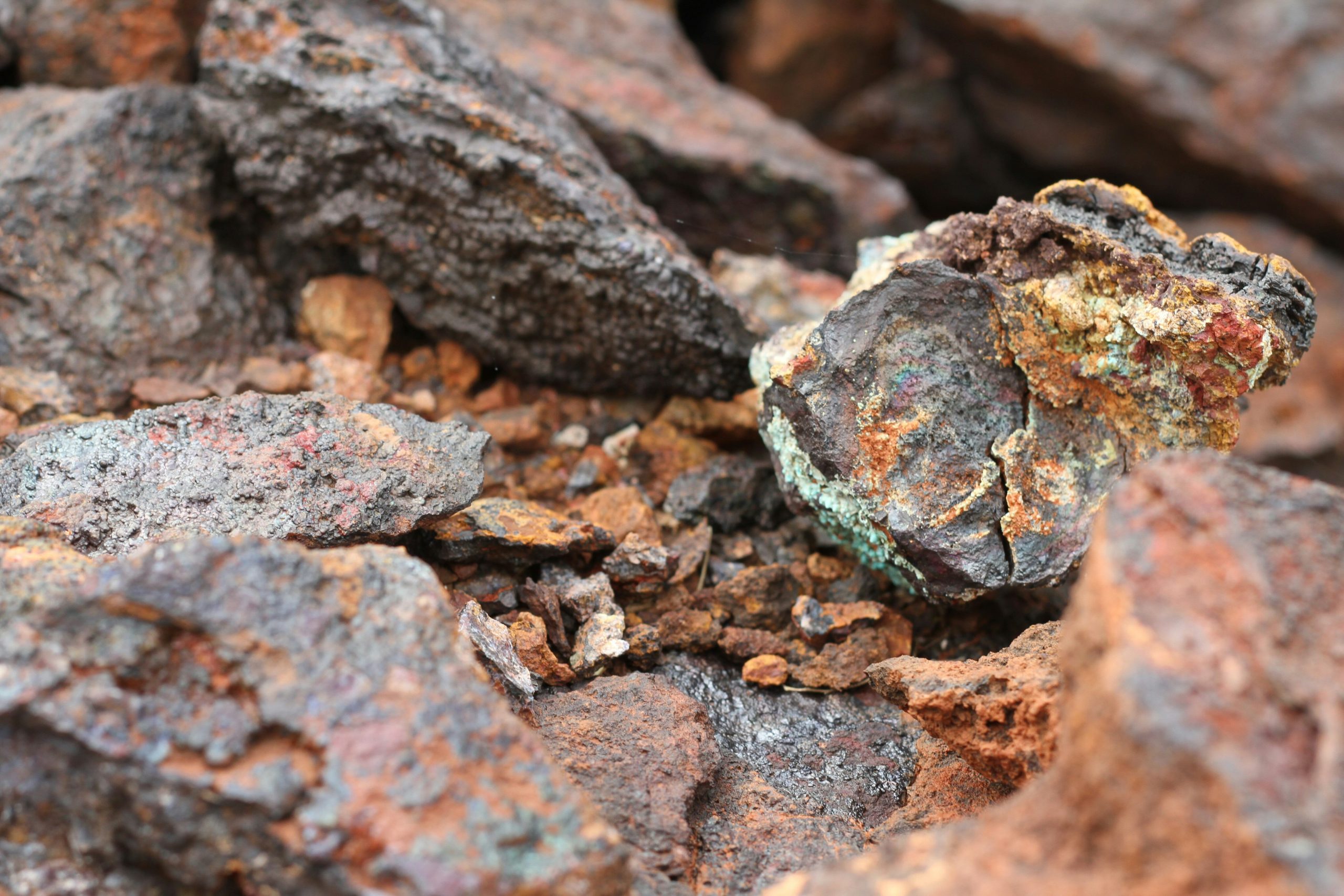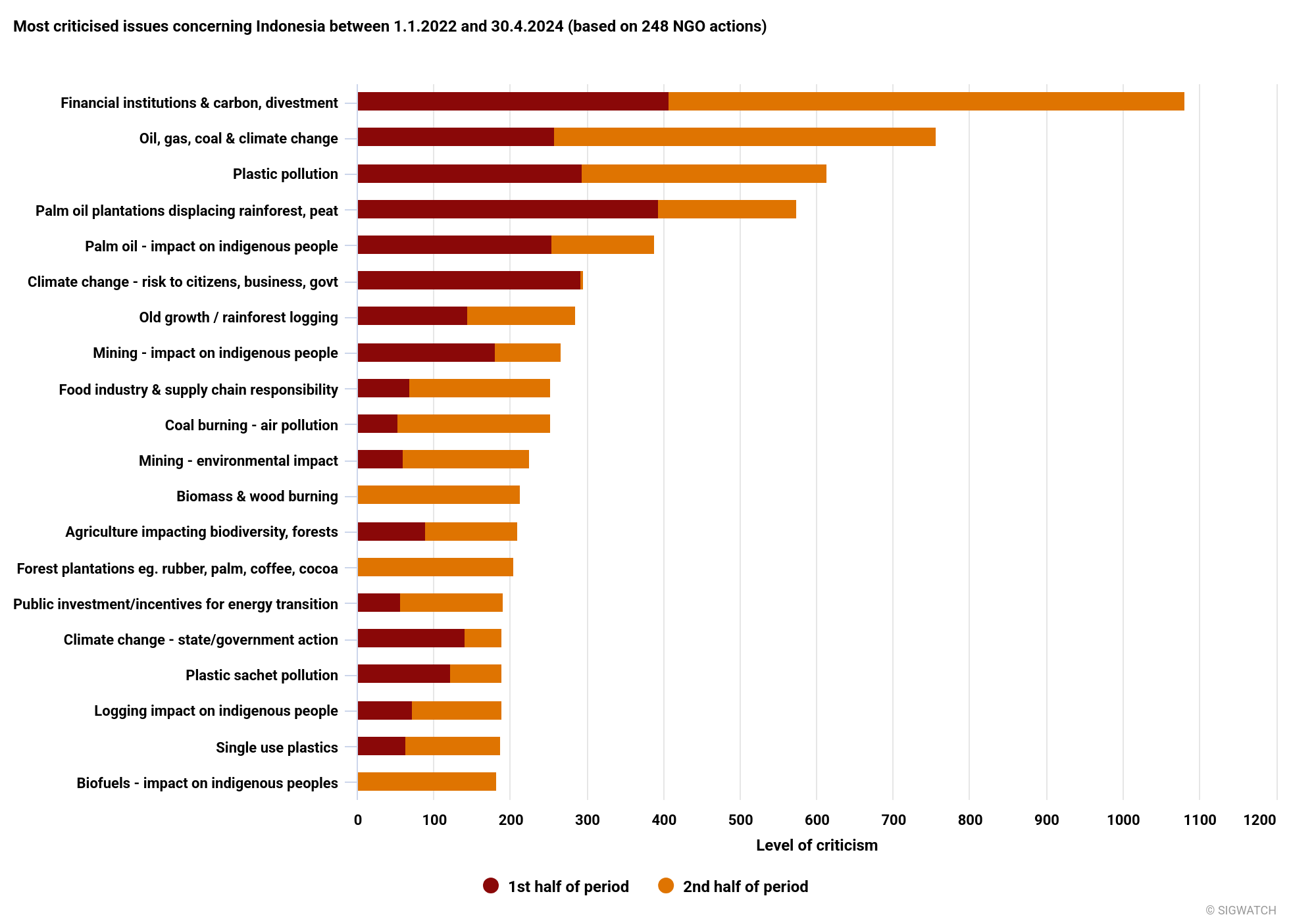
We are currently witnessing a global scramble to meet the growing needs for a new type of raw material – critical minerals like nickel, lithium and copper believed to be essential for the renewables transition.
To support this boom, major countries and companies are expanding their mining operations in resource-rich nations to prepare for the shift away from fossil fuels.
Indonesia has emerged as a key player in this market – dominating global nickel production thanks to vast reserves and recent regulatory changes that flooded the country with foreign investments. In fact, it is predicted that Indonesia will produce 43.9% of the world’s nickel by 2027.
Supply meets demand.
But what’s noteworthy here is, the Indonesian activist ecosystem is uniquely positioned to respond to this burgeoning demand for nickel.
This is due to the prominence of campaigning on another raw material in the country – palm oil. For years, palm oil cultivation has been the main focus of activists campaigning within Indonesia, with groups flagging concerns around environmental degradation, community displacement, Indigenous rights, and biodiversity loss.
During this time, global coalitions have worked with activists on the ground to escalate issues around palm oil impacts to centres of power, where supply-chain regulations mean significant reputational and legal risk for lead firms. Roughly 35% of NGO activity targeting Indonesia on palm oil originated within Indonesia itself, with the rest coming from international groups mainly based in Europe and the US. And these local Indonesian activists are well-embedded in international networks – in 2024, Indonesian NGOs campaigning on palm oil were brought to Unilever’s AGM in London by international Friends of the Earth groups.
This means Indonesian activists are well-versed in networking and campaigning at an international level.
Nickel mining in Indonesia
Given this history of local campaigning on palm oil, the existing ecosystem of groups in Indonesia will be keeping a close eye on developments with the booming nickel mining industry.
Although the raw materials differ, both industries will have similar associated issues. SIGWATCH data shows that mining’s impact on Indigenous people and the environment are both within the top 15 issues that activists’ campaign on concerning Indonesia.

Already, In Indonesia, the local Greenpeace branch is calling out candidates running for public office for “glorifying” the nickel mining industry. They claim that the activity triggers environmental destruction, acute pollution, and the displacement of Indigenous peoples.
And the pressure is building with groups outside of Indonesia as well. UK-based Survival International are claiming that an uncontacted Indigenous tribe is facing genocide because of logging and nickel mining operations penetrating its rainforest.
Why should businesses pay attention?
The expansion of the nickel mining industry will undoubtedly be accompanied by an intensification of campaigning from across the NGO spectrum and across jurisdictions. Established networks will ensure that local issues escalate rapidly and become issues of global concern, with the possibility for protestors to show up both at the site of the operations and at the HQs of the lead firms.
As such, it is even more important than ever that those companies looking to involve themselves in the new nickel industry in South-East Asia have a good understanding of the stakeholders involved, and the issues that they may lay at their doorstep.
What our clients say
What our
clients say
“In our experience, SIGWATCH is one of the few sources of ESG data we can absolutely trust to be reliable.”
“Our company is based in Japan. Most employees are Japanese and we don’t really know what is happening around the world. SIGWATCH gives us visibility of the global ESG issues and trends we need to have on our radar.”
“With SIGWATCH, we’re able to absorb NGO data in an awesome way that
simply wouldn’t be possible otherwise. We can hear the NGOs’ voice, to better
strategize and get ahead of trending issues.”
“With social listening, we’re limited to knowing what people are saying only about OECD. With SIGWATCH, we see not only what is being said about us, but also what is being said about everyone else.”
“A lot is said and written about sustainability and ESG every day but no one,
apart from SIGWATCH, provides the big picture, SIGWATCH offers a comprehensive overview of what’s happening in the corporate sustainability
world rather than just a narrow snapshot.”
“SIGWATCH is a good source to show that NGOs are watching us and watching our clients, and we definitely need to be aware of the issues they are bringing up.”

